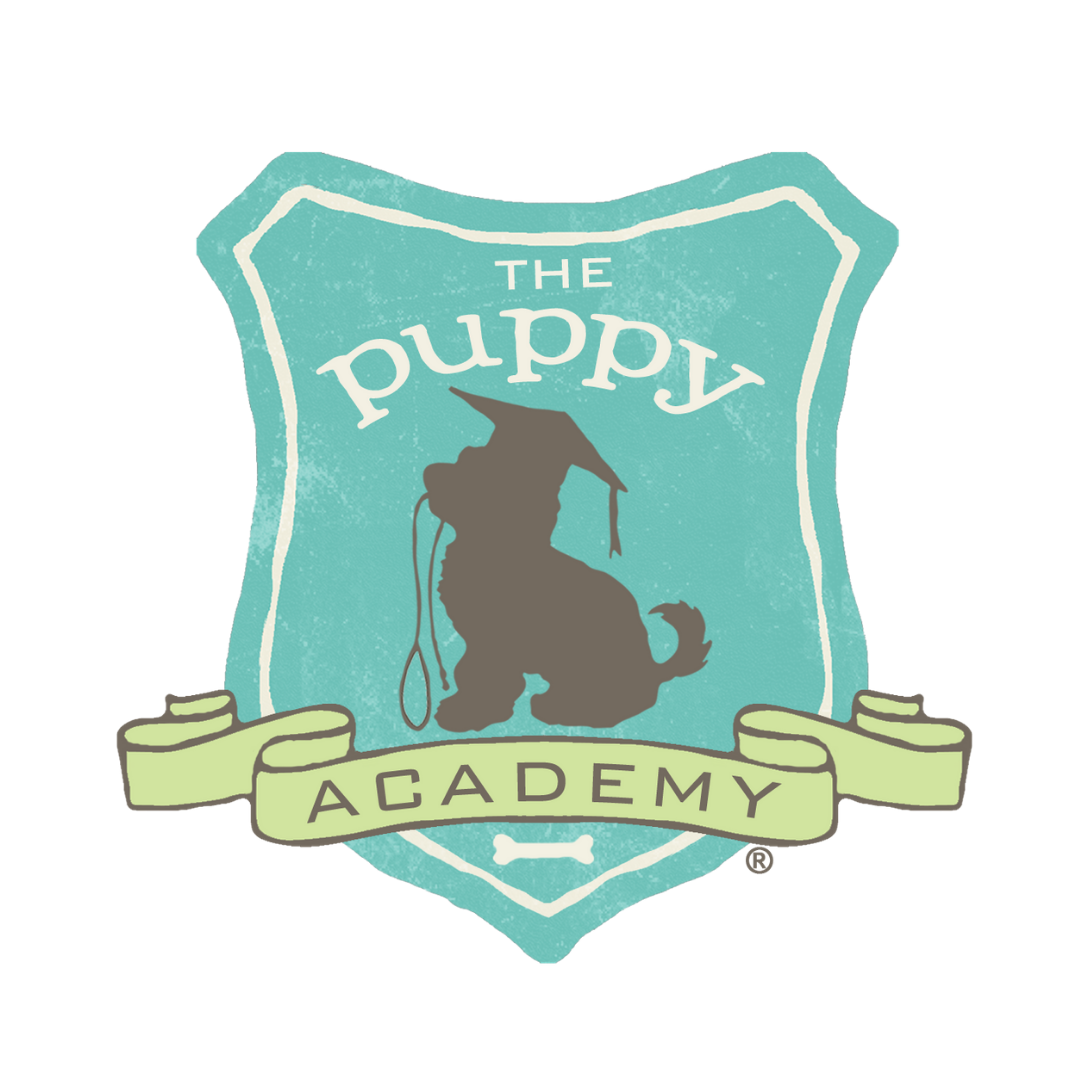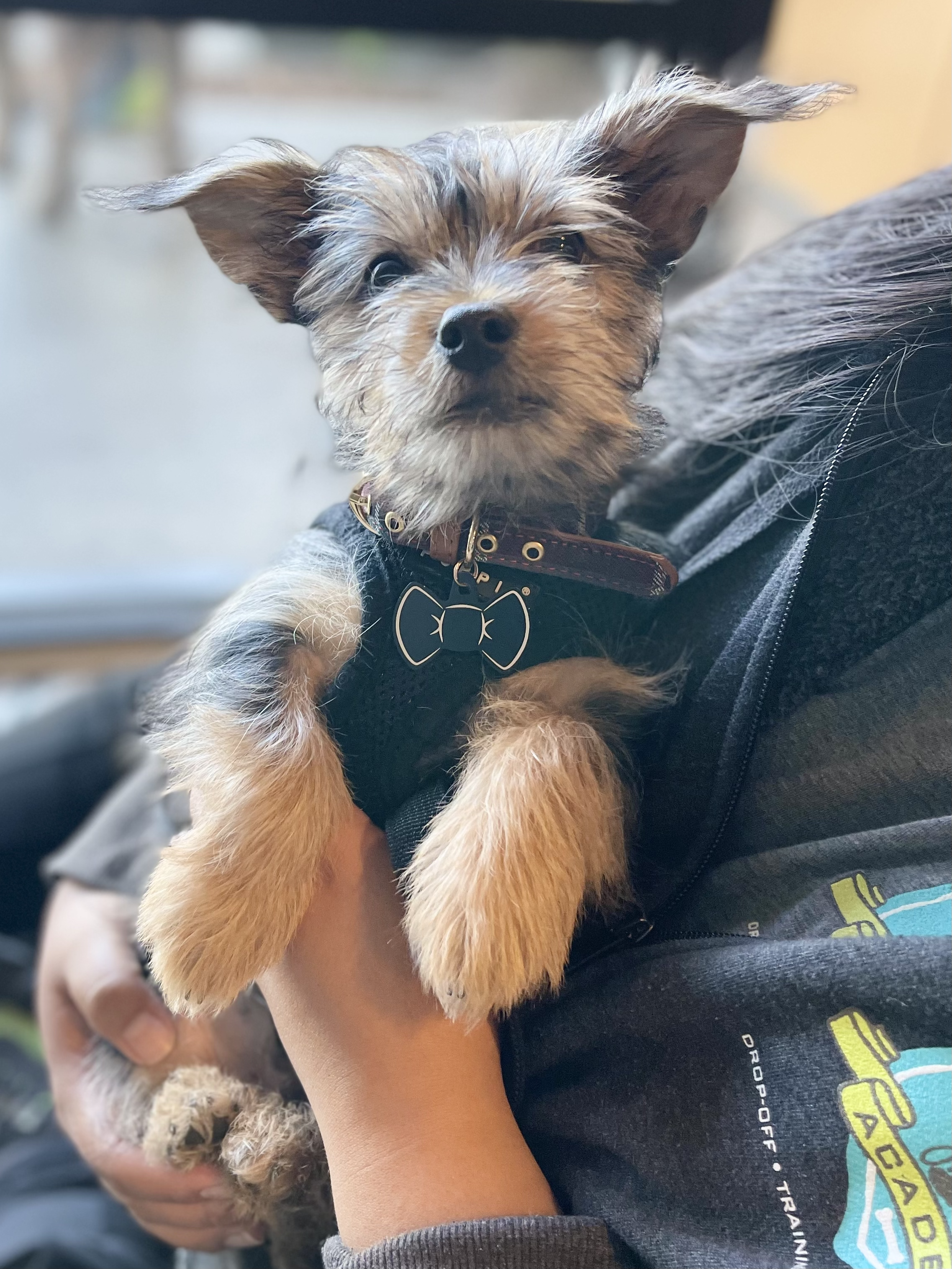Potty training your new puppy is an essential aspect of puppyhood and is crucial for your home's hygiene and cleanliness — AND your sanity! A well-trained puppy must learn where and when to do their business from a young age, and how to “hold it” in between, so you can eventually trust them around the house. Here are our 5 Steps on how to potty train your puppy fast, whether you want to potty train a puppy to go outside or potty train a puppy on pads.
The Puppy Academy student: Magnus!
WANT TO KNOW MORE ABOUT TRAINING YOUR NEW PUPPY? SET UP A FREE CONSULTATION FOR OUR DAT SCHOOL NOW!
First, Understand Your Puppy's Needs:
It’s important to understand your puppy's needs so you can avoid accidents. Puppies usually have to go potty soon after waking up, drinking, eating, or playing/moving around, so it’s crucial to keep this in mind so you can be proactive. Don’t wait for your puppy to give you a “sign” that they have to go! This is a common mistake new puppy parents make. Most puppies will not “tell you” they need to go. Picking up their clues such as circling and sniffing usually come later on.
Now let’s potty train!
STEP 1: Create a Potty Schedule
Creating a potty schedule will streamline the potty training process and make it a simple plan you just need to follow! Designated potty breaks, feeding and playtimes with both wake and nap windows will provide your pup the structure and routine they need to potty train them quickly. You can follow our guidelines here to Create Your Own Potty Schedule that allows you to build a puppy potty training schedule by age.
STEP 2: Get The Right-Sized Crate
During your pup’s scheduled rest or nap time, a crate will help restrict your pup’s movement so they can’t run around, which can stir up their bladder and bowels and the need to “go”. Your puppy's crate should be large enough for them to turn around and lay down in comfortably, but not much bigger than that. You want to avoid your pup being able to potty in one end and sleep in the other. If your pup is having accidents in their crate, check the size. Get more crate tips and sizing here!
STEP 3: Designate A Specific Spot
The Puppy Academy student: Mookie!
Designating a specific spot for your puppy to go potty is essential for your pup to know where you want them to go. At their potty break time, guide them to their spot on a short leash (4-6ft) and give them a command word or phrase to use each time they go so they’ll eventually learn to associate the command word with the behavior. Keeping the spot consistent, whether you’re bringing them outdoors or using pee pads indoors, will make it easier for your puppy to identify the correct spot so you can wean off using the leash to guide them faster.
STEP 4: Praise and Reward!
Praising your pup when they use their designated spot to go potty will encourage them to repeat the behavior. You can also use treats, toys, or verbal praise as a reward system. This positive reinforcement will encourage them to repeat this action again and again. TIP: Wait until they are completely FINISHED before praising to make sure they’ve fully emptied themselves!
STEP 5: No Potty, No Free Time
If your puppy DOES NOT potty at their designated time, they need to go back in their crate for another 10-15 min and then try again in order to avoid an accident. If they consistently don’t go at their potty times, that’s a great indication it’s time to increase the time in between them on their schedule!
REMEMBER: The more structure you give your puppy while they’re young, the more “freedom” you’ll be able to give them as they grow because they will have established great habits and have earned your confidence that they can be trusted around the house. Read more of our potty training tips here or take our free potty training class here!
There WILL Be Accidents Along The Way!
You’re both learning, and while you’re on this learning curve, some accidents are bound to happen and are a completely normal part of the potty training process.
When they do happen, don’t get angry or frustrated with your puppy. It’s not their fault. Most likely they were given too much unsupervised free roam, too much water, or aren’t following the potty schedule as diligently as is needed in the beginning — and this falls on us as the parents to be better for them.
When there is an accident, clean it up immediately with an enzymatic cleaner. This will neutralize the scent and reduce the likelihood of your puppy going back to that spot. Avoid using any ammonia-based cleaners, which can intensify the smell of urine.
The Puppy Academy student: Leila!
CAPTURE AND KEEP YOUR PUP’S MOST ADORABLE MOMENTS IN THEIR VERY OWN PUPPY MEMORY! GET IT HERE!
Like all things puppy training, creating new good habits for your pup takes lots of repetition of doing the exact same thing over and over again. Create the pattern of where you want your puppy to go potty by always guiding them on leash to it for the first few weeks. This will create the muscle memory they need for it to become instinctual for them to go there. The more consistent you can be, the more consistent they will be.
Join our Online Puppy School for more help with training your puppy right from home using the same system and methods we’ve used to successfully train thousands of puppies!
Does your puppy have specific potty training issues? Ask our trainers every Wednesday at 1pm on our Instagram @thepuppyacademy during our Ask A Puppy Trainer Show! All replays are posted afterward, and you can catch up on our last ones on our YouTube channel!
Lastly, don’t forget to sign up here for the VIP (Very Important Puppy) list where we send weekly puppy training tips direct to your inbox!
Check out these blogs related to puppy training and more!
The Ultimate Guide To Puppy Training
Get Your Puppy To Stop Sniffing Everything On Walks!
Should You Let Your Puppy Sleep In Bed With You?











